In February 2020, EAS completed a study testing the short-term effects of crude oil exposure and removal of oil on leopard frogs (Rana pipiens) in a captive setting, designed to mimic an oil spill response. Funding for this study was provided by a grant from the Oiled Wildlife Care Network, part of the Karen C. Drayer Wildlife Health Center at the University of California, Davis.
EAS maintained 130 live frogs using Office of Lab Animal Welfare (OLAW) husbandry standards and an approved IACUC protocol. Researchers monitored short-term survival, food consumption, and weight, as well as irritation and other impacts to the skin. Additionally, this study looked to determine the efficacy of different washing methods on removing oil.
Approximately 40% of amphibian species worldwide are listed as threatened or endangered. Due to their susceptibility to damage from environmental exposure, EAS research will help to determine the potential impacts crude oil has on amphibian health and the effects of washing animals during spill response. Combined, these objectives will help wildlife workers make informed decisions regarding amphibian response during oil spills.
